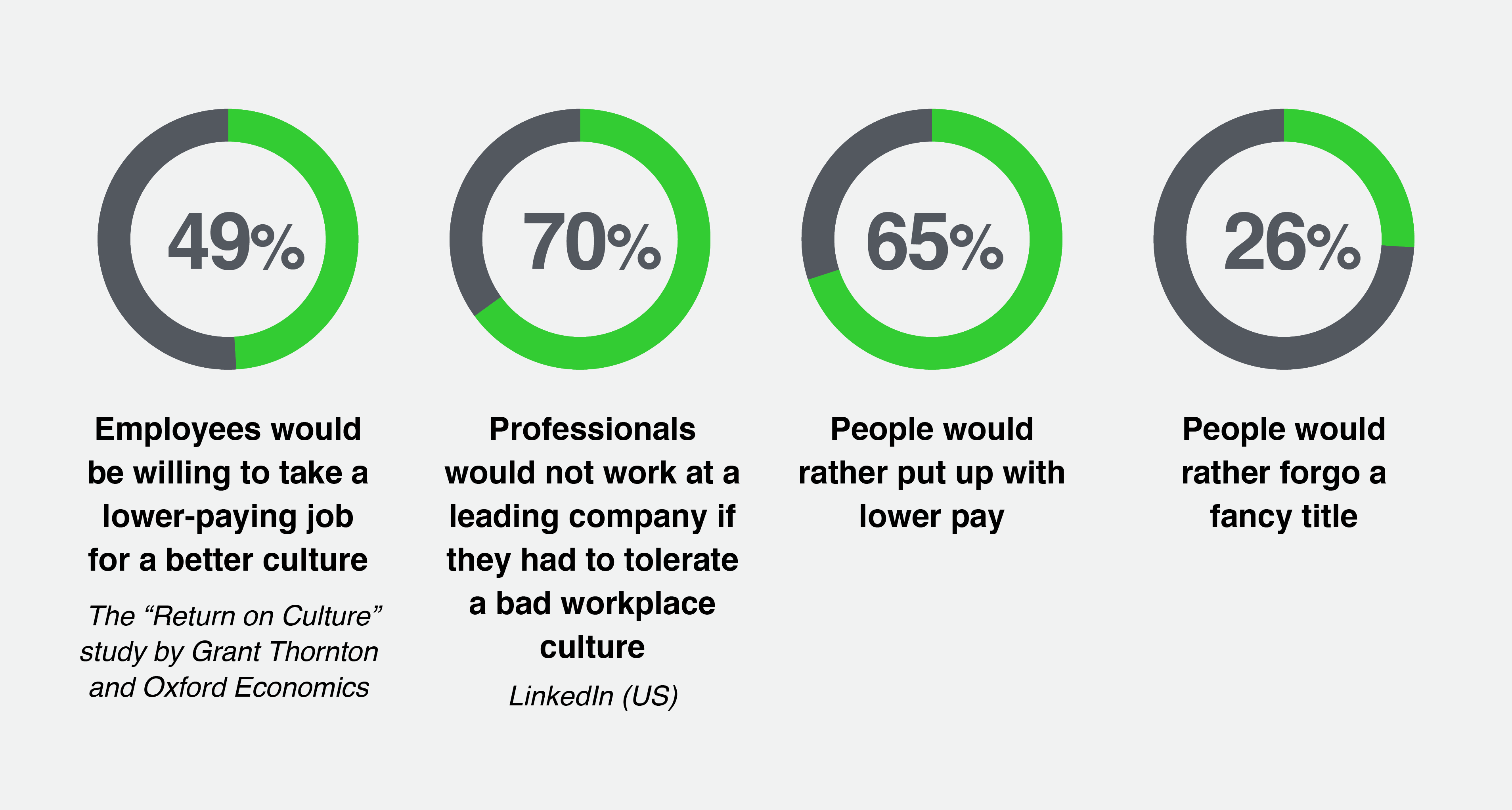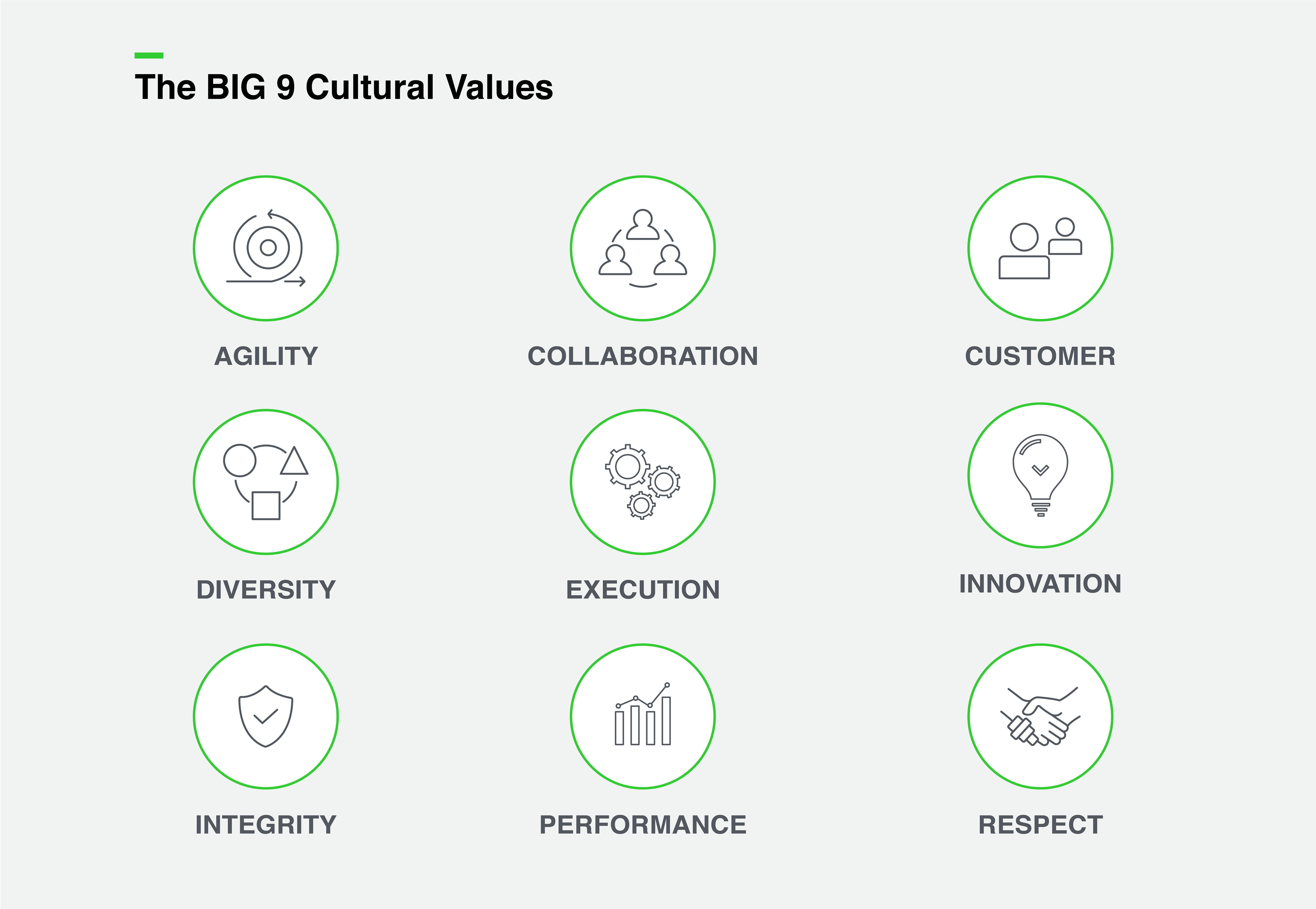
At a time when recruiting and retaining top employees is a priority for organizations everywhere, the link between a strong company culture and its bottom line is stronger than ever. Just consider these stats.
And Gallup, which has studied employee engagement for 30 years, presents this correlating data. “Engaged employees drive 21% higher profitability,17% higher productivity, and 41% lower absenteeism, whereas disengaged employees cost organizations between $450 and $550 billion annually.”
There’s no question that company culture matters. The question is, how do you measure it?
While company leadership may be committed to building and sustaining a strong culture, the reality is that employees don’t always agree. In a recent survey, nearly half of employees (45%) said leadership is minimally or not at all committed to improving culture.
Measuring how well a company walks the talk when it comes to culture and values can be both difficult and imprecise. That’s why the new Culture 500 Index from MIT Sloan captured our attention.
MIT Sloan created what they call the “ultimate culture scorecard” – an interactive index that quantitatively measures and compares the cultures of over 500 of the largest companies in the United States.
The Culture 500 Index includes more than 1.4 million employee reviews from Glassdoor, which MIT Sloan determined was the ideal data source for a large-scale study of corporate culture.
“Glassdoor contains more than 70 million employee reviews from over 1 million organizations that include both free text and quantitative ratings on employees’ overall assessments of the company, senior leadership, work-life balance, and other factors. This is historically remarkable.”

Using machine-learning, the Culture 500 Index provides a data-based view of how companies live up to their values in the eyes of their employees. MIT Sloan identified nine key values that are most frequently cited in the corporate value statements of large companies, calling them the Big 9:
HR professionals, managers, and executive leaders are using the Culture 500 index to audit their companies and their competitors, allowing them to measure culture just like other important metrics in their companies.
How culture metrics can enable all employers to create a stronger culture
The index is valuable for all organizations, not just those featured in the Index.
Since it mines actual employee data, it provides meaningful insights into what makes a successful corporate culture. The index also systematically identifies the values that can make a company “cultural champion.” While these values may not be applicable or relevant to all companies, they provide a model for inspiration.
A strong company culture can increase employee engagement, decrease turnover, enhance brand identity, and lead to stronger business performance. Simply put, company culture can have transformational power.
BNO can help your company build an employer brand and culture that lives up to your values. And drive your business. Let’s talk.






